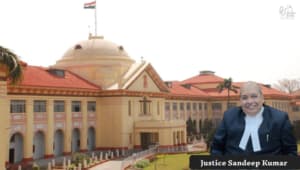The Supreme Court on Friday delivered a significant ruling concerning the rights of arrested persons, particularly on whether police must always provide written grounds of arrest at the moment of arrest. The case arose from the much-discussed BMW hit-and-run matter in Mumbai involving Mihir Rajesh Shah, but the Court’s decision is framed as a broader legal principle affecting all criminal cases across India.
Background
The appellant, Mihir Rajesh Shah, was arrested in connection with a fatal road accident last year in Mumbai. His legal team argued that his arrest was unlawful because police did not provide him the grounds of arrest in writing, as required under Article 22(1) of the Constitution and Section 47 of the Bharatiya Nagarik Suraksha Sanhita (BNSS).
The Bombay High Court had earlier acknowledged that while written grounds were not handed over initially, the arrest remained valid due to the seriousness of the charges and the appellant’s attempts to evade arrest. The matter came to the Supreme Court, raising larger constitutional questions on how and when reasons for arrest must be communicated.
Court’s Observations
The bench observed that informing an arrested person of the grounds of arrest is not a procedural formality, but a fundamental safeguard tied to personal liberty under Article 21.
“The bench observed, ‘The arrested person must have a real and meaningful opportunity to consult a lawyer and oppose custody. This opportunity is illusory unless the grounds of arrest are clearly communicated.’”
The Court traced legal precedent and noted that earlier judgments had sometimes differed on whether the grounds must always be provided in writing.
However, the Court also acknowledged practical realities:
- In cases where the police witness a crime in progress, immediate written documentation may be impossible.
- Insisting on a written note at the moment of arrest may obstruct urgent law enforcement action.
Thus, the Court struck a middle path.
Decision
The Court held that grounds of arrest must normally be supplied in writing, and specifically:
- In most cases, a written copy of the grounds must be provided at the time of arrest and in a language the accused understands.
- In exceptional urgent situations-such as when a crime is happening before the officer-grounds may be explained orally first.
- However, a written copy must still be provided within a reasonable time, and no later than two hours before the accused is produced before the Magistrate for remand.
- If this requirement is not met, the arrest and remand will be treated as illegal, and the accused is entitled to be released.
The judgment closes by emphasizing that the protection of personal liberty must remain meaningful and not be “reduced to a paper promise.”
Case Title: Mihir Rajesh Shah vs State of Maharashtra & Another
Court: Supreme Court of India
Bench: Justice Augustine George Masih (Authoring Judgment)
Case Type: Criminal Appeals (Converted from SLPs)
Case Numbers: Criminal Appeal No. 2195 of 2025 (with connected Criminal Appeal Nos. 2189 & 2190 of 2025 and SLP (Crl) No. 8704 of 2025)
Date of Judgment: 2025















